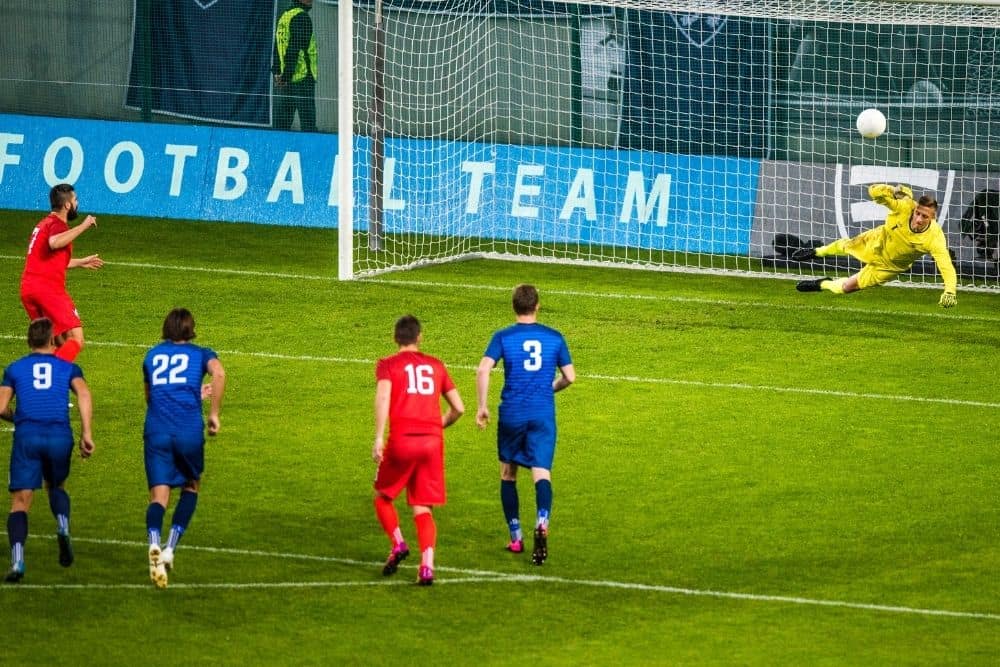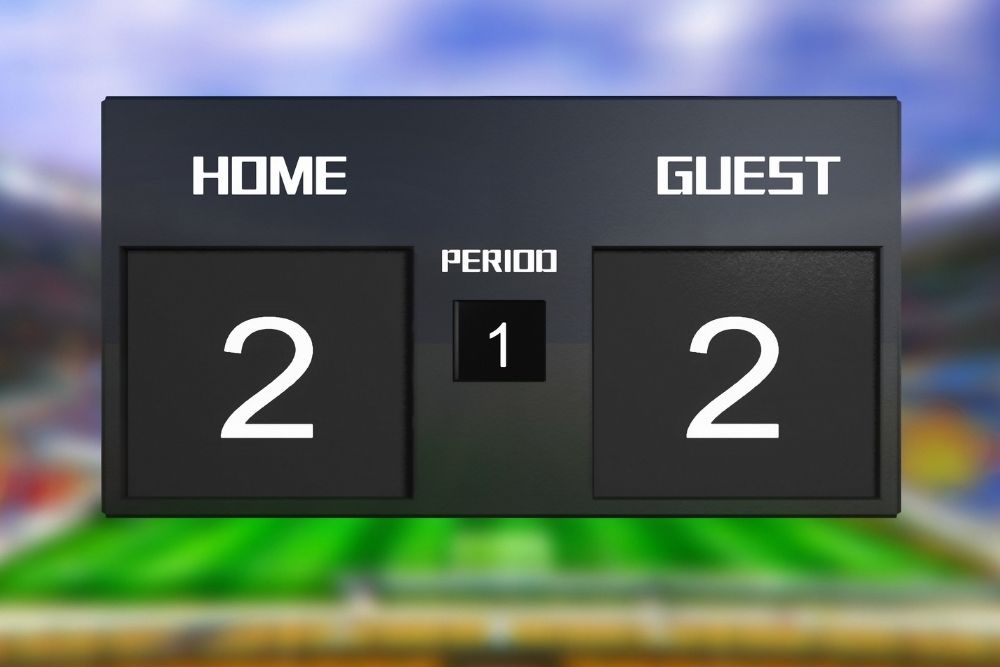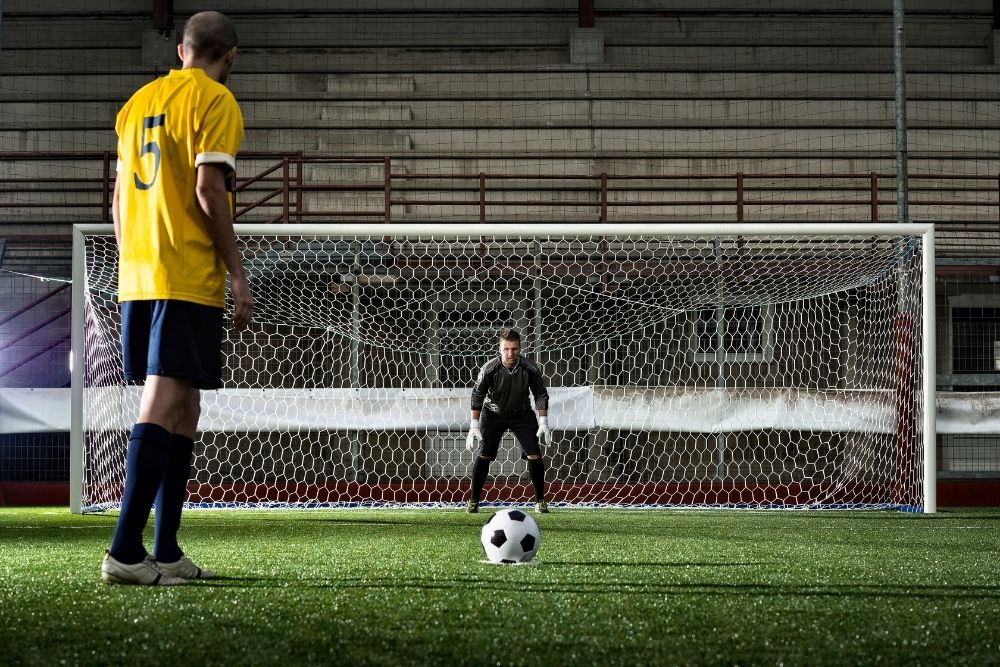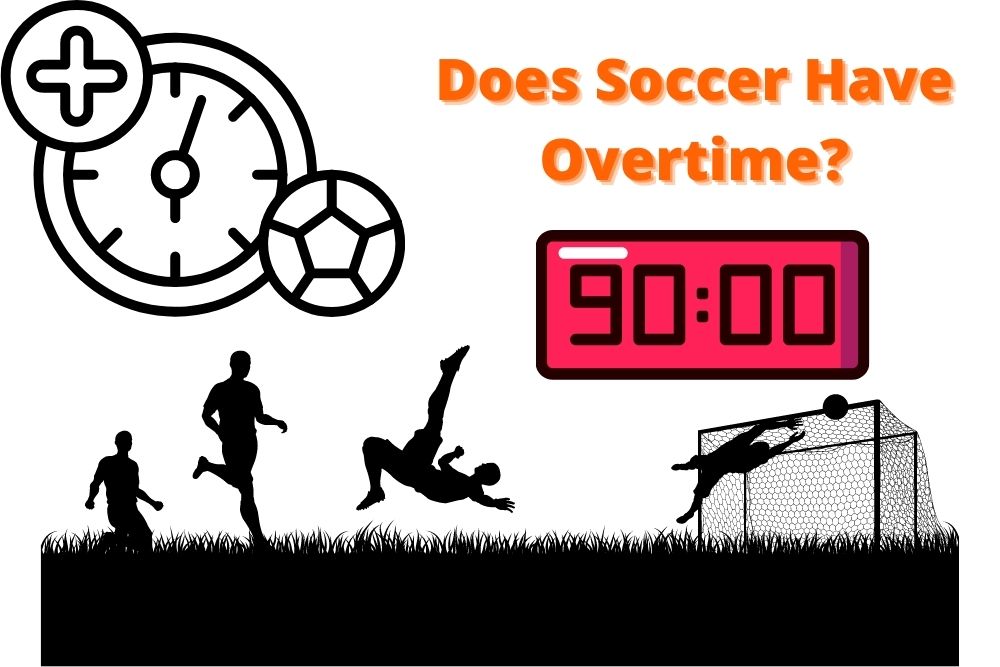Soccer matches have one of the highest probabilities of ending in a tie when compared to other sports. And that’s when the dubiety takes over for new soccer fanatics.
How to break off the tie?
There is a Golden Goal, Overtime, or a Penalty Shootout carried out to break a tie. But figuring out which method to use and when to use it is where the actual confusion breaks out.

So let’s trace back soccer to its early days!
Towards the end of the 19th century, soccer was starting to take off big time in Europe. And though the sport had become much popular, there was no FIFA or a sophisticated league to lay down a set of rules.
It was in 1866, when London played Sheffield, that the 90-minute playing time was introduced to soccer. However, matches would still be accepted as ties, and there were no rules for tie-breaking.
But it wasn’t until the big leagues showed up and the FIFA formed that attracted betting and fans. And as soon as the gambling money and fans turned their eye to the sport, tiebreakers were introduced to soccer.
The first tiebreaker solution for soccer was a Golden Goal, which remained very popular until the 1998 World Cup. It was supposed to speed up the game as any team to score a goal would win the fixture.
However, it only made the teams more defensive and worked counterproductively. And that’s when the concept of overtime largely took over soccer!
Quick Navigation
What is Overtime Called in Soccer?
Soccer fans use the term “Extra Time” when referring to overtime in the sport.
Overtime is more of a North American sports term coming out of the likes of Basketball. But since the concept of Overtime and Extra Time are not much different, North Americans prefer to use the word for soccer as well.
Soccer is a sport plotted by clockwork. It is played in two 45-minute halves with up to 15 minutes of break in between.
And if the result doesn’t go either way by the end of the 90 minutes, the match goes into overtime.

However, not every tie in soccer leads to overtime. A tie is a widely accepted result for soccer matches around the World.
But there are a few exemptions, like the nature of a tournament that forces a tiebreaker or overtime. And that brings us to our next point in line!
Does Soccer Have Overtime?
Yes, soccer does have overtime, but it is called Extra Time instead.
Overtime happens in soccer when neither team gets a goal up on the other by the end of the 90 minutes allotted.
However, a tied soccer match will not go into overtime if it’s not a knockout round!
When Does Soccer Have Overtime?
So why do tied soccer games go into overtime sometimes, and why not the others?
You’ll have to understand the hierarchy of leagues and tournaments to figure that out. But I’ll lay it out in the most exact words I can find.
There are two types of tournaments played in soccer.
One is a League, where every team plays against each other 1-2 times before the end of the season. And by the end, the team with the highest points takes the trophy home.
But if you don’t know how the points system works either, here’s a quick lesson. Three points for a win, One point for a draw, and Zero for a lost match!
The other tournament is a knockout one like the Champions League and the World Cup. Teams go through a point-based group stage and enter knockout rounds in the round of sixteen.
And you can take a guess here about how the winner of a knockout tournament is chosen by elimination!
Now, overtime is used to determine the outcome of a tied knockout round match. Or, more simply, when the advance of only one team is required for the next round.
So the next time you’re watching a soccer match, and it doesn’t ascend into overtime, know that it’s either a friendly or a league match!
When Doesn’t Soccer Have Overtime?
A soccer match will not go into overtime or any tiebreaker if it’s a league match or a point-based round. Because in each of these cases, both the teams will get a point each for the tie.
But if the match is in a knockout round or tournament, having a winner by the end of 90 minutes is necessary. And that’s when tiebreakers like overtime and penalty shootouts happen!
In the case of tournaments, you also have to take the overall result of the round into perspective. The match results for soccer tournaments are deduced from the complete round.

And round has two matches where each team gets to play on at their home ground. So, if the match is a draw but a team has more goals on aggregate or has more away goals than the other, the match will still not enter overtime.
How Does Overtime Work in Soccer?
Overtime is the most popular and commonly used tiebreaker in soccer. The outdated rule of the Golden Goal isn’t played in major leagues and tournaments anymore.
But the presence of penalty shootouts begs the question, how does overtime work in soccer? And how does one know whether it’ll be a shootout or overtime?
The rules in soccer are plainly simple here.
At the end of the 90 minutes in a knockout round, a match with an undecided fate enters overtime.
And if the game still goes undecided by the end of overtime, penalty shootouts are carried on. It is always in this specific order!
The reason why overtime is given preference over the shootout in soccer is that penalties take away many elements of soccer. A striker shooting at the goal from point-blank range doesn’t include much team play and tactics.

On the contrary, the competition really heats up in overtime games. With most of the players on both teams tired, numerous defensive gaps are opening up.
But unlike Basketball, the overtime in soccer happens only once and doesn’t keep on rolling until there is a winner. Soccer is an exhausting sport, and players can’t play over 120 minutes on the pitch.
That’s why penalty shootouts are the last tiebreakers if, on a rare occasion, overtime doesn’t get the result.
How Much is Overtime in Soccer?
Overtime is an additional 30-minute window allotted to both teams to get the upper hand on the scorecard.
The 30 minutes are broken down into two halves of 15, with a minute of a break in between. Though it wasn’t allowed until recently, soccer teams can make up to four substitutes instead of three if they enter overtime.
However, it is easy to confuse overtime with stoppage time or injury time.
Ever noticed how the clock keeps on ticking even after the 45-minute or 90-minute mark? That’s stoppage time!
Stoppage time is additional time added to the end of each round. Since there are no timeouts in socce r, the clock keeps ticking through non-playing moments of the match.
And these non-playing minutes of injury, substitution, fouls, or time-wastage by a team are added to the end of the playing minutes at the referee’s consent.
Stoppage time is not fixed and varies for every individual match. But the 30 minutes of overtime is the same for every tied knockout match.
Overtime is also a concept for futsal and indoor soccer matches.
For futsal tournaments, an additional window of 10 minutes is added at the end of the 40 minutes of play if no team manages to score by then.
The overtime is divided into two halves of 5 minutes with a minute of break separating them.
And for indoor soccer matches, the same 10 minutes are added at the end of the 55 minutes of the game. If players fail to score in these additional two halves of 5 minutes, the match then proceeds to freekicks from the penalty mark.
Conclusion
Overtime gives us some of the most magnificent goals in soccer.
The sheer pressure of being on a quicker clock while most of the team is tired brings extra excitement into this tiebreaker.
And it is the fan emotions tied to overtime that makes it such a common tiebreaker in soccer. It fills in on the shortcomings of the Golden Goal rule and provides more authentic soccer to viewers and players and a penalty shootout.
Hi there, I’m Jay.
Soccer is everything in my life! My friends and I have created this blog with all our enthusiasm, passion, and understanding after years of playing pro soccer. Hope you will enjoy it!
